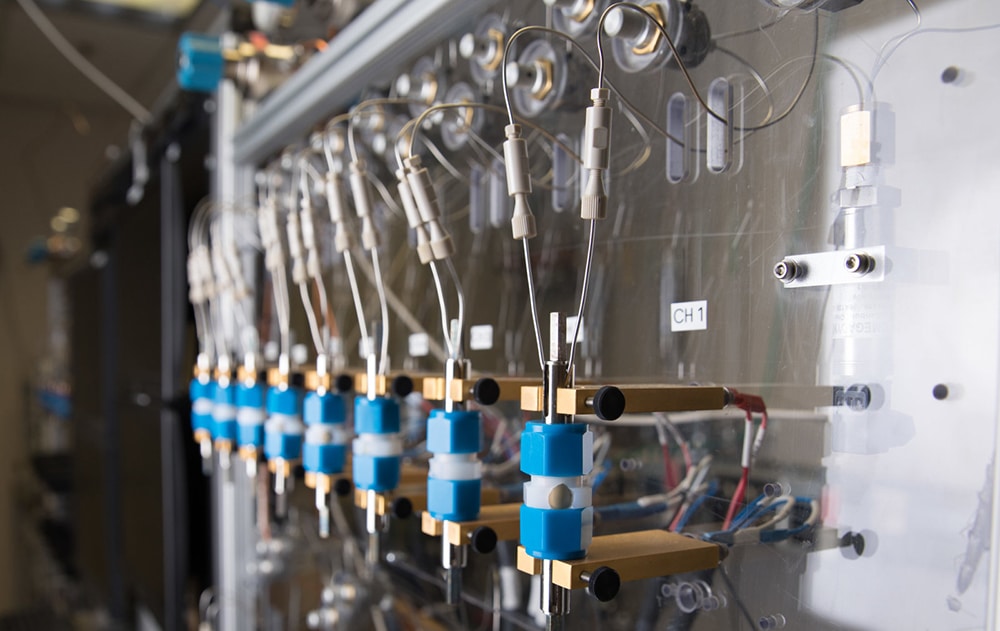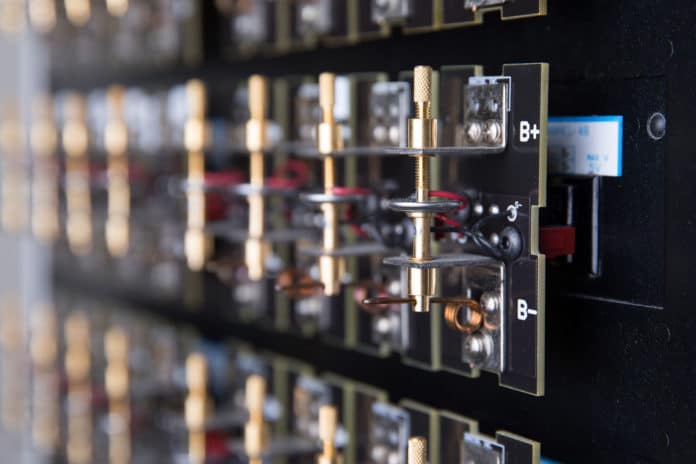A team of researchers from IBM has announced a promising advance in the field of rechargeable batteries. They have developed a new battery using new materials for the cathode and electrolyte to eliminate the use of heavy metals and offer more efficient and safer batteries.
Complaints about battery performance are nothing new: lithium-ion batteries have long been one of the most frustrating parts of modern technology. They go wrong, they charge slowly, they are prone to explode, and they are horrible for the environment. Reportedly, the new IBM battery eliminates those exact headaches.
To avoid these problems, the researchers combined three new materials extracted from seawater. They were able to create a new cathode without nickel or cobalt, combined with a new electrolyte with a flashpoint.
A smaller, greener and safer battery
Respect for the environment is not the only thing that the new heavy metal-free battery has in its favor. IBM does not detail the materials used, but the firm announces that new batteries can be optimized to exceed the capabilities of lithium-ion batteries in a number of individual categories, starting with the largely reduced manufacturing cost. In addition, the combination of the cathode and the electrolyte prevents the formation of dendrites of the lithium anode, reducing the risk of fire.
This new battery could revolutionize electric cars, thanks to an extremely fast recharge time – less than five minutes are required for the battery to reach an 80% charge. It can reach an energy density of more than 800 watts hour per liter, which is comparable to modern lithium-ion batteries. Also, a power density (the capacity to provide high power) which exceeds 10,000 W/L outperforms the most powerful lithium-ion batteries available.

Read more: Lightweight lithium-sulfur batteries double the range of electric aircraft
According to IBM, the tests on this heavy metal-free battery showed that it could be designed for a long-life cycle, making it an option for smart power grid applications and new energy infrastructures where longevity and stability are key. Finally, its energy efficiency exceeds 90%, meaning that it restores the energy stored with very little loss.
While IBM has not revealed whether its new battery technology has progressed beyond the experimental stage, its advance blog post uses promising language about its possible applications as a lithium-ion replacement. It is easy to get excited about advances in battery technology, especially if you are often affected by the bad life of current batteries. However, don’t get ahead: IBM may seem optimistic about its progress, but stories like this are nothing new.
